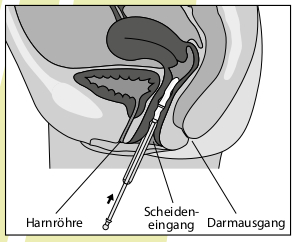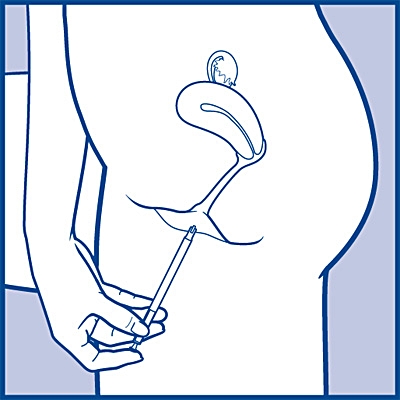ASSALAMUALAIKUM
Hi.. guys,, hari ni ayi nak share event berkenaan vaginas kita tau,,
mesti ramai perempuan diluar sana yang tak tau bahwa vaginas kita perlu perawatan khusus untuk mendektesi cancer ovarium atau canser rahim lebih awal, dengan kita menjaga kebersihan vaginas, kita akan terhindar dari keputihan, bau tak sedap dan pembiayakan bakteria jahat.
so hari ini ayi perkenalkan "VAGISAN" product dari Germany yang di reka khas untuk merawat dan menjaga kebersihan vaginas kita.

Dalam bekas pink yang comel tuh ada 4 jenis product, nanti ayi jelaskan ya satu persatu kegunaanya..

happy sangat dapat box pink comel ni, lengkap dengan nama kita... dah tak sabar nak review..


Talk dengan docter dan pakar berkenaan vaginas dan sakit puan, boleh cek di chanel youtube kita ya..


di sela-sela break, tak lupa abadikan moment bersama Vagisan.






Vagisan MoistCream is a smooth, white cream developed for use in symptoms of vaginal dryness. Vagisan MoistCream contains no hormones (oestrogens) and can therefore be used alongside hormone replacement therapy or during the menopause with vaginal creams or pessaries that do contain hormones (oestrogen). Thanks to the addition of lactic acid, the cream is set at a pH of 4.5. As a result, Vagisan MoistCream helps maintain a natural pH within the vagina.
Two effects contribute towards the relief of symptoms of vaginal dryness by Vagisan MoistCream:
- The cream has a high water content, thereby moisturising the skin within the vagina and external genital area.
- Nourishing lipids (fats) keep the skin supple. Regular use of Vagisan MoistCream can help prevent irritation and inflammation within the vagina and external genital area.
What you should know about the symptoms of “vaginal dryness”
The cream can also be used for vaginal dryness before sexual intercourse, in principle with latex condoms. In women wishing to conceive, there are no contraindications to using Vagisan MoistCream for vaginal dryness, as sperm motility is not impaired.
The symptoms of vaginal dryness can severely affect the quality of life of those women affected.
The sensation of dryness is often accompanied by other discomfort, such as itching, stinging or soreness involving the vagina, vaginal entrance and external genital area. In many cases, these symptoms also make sexual intercourse painful.
Particularly affected are women in the menopause (which, in some cases, starts as early as at 40 years of age) and during the years thereafter.
In such cases, vaginal dryness is caused by the decreasing production of sex hormones (including oestrogen). Less vaginal fluid is produced within the vagina; the skin becomes thinner and more fragile. Whilst this process is quite normal, it can bring considerable discomfort.
After womb or ovarian surgery, during pregnancy and breast-feeding or while taking the Pill, hormone deficiency/fluctuations or hormonal imbalance can also lead to symptoms of vaginal dryness.
Some metabolic disorders (e.g. diabetes), medications, radiation treatment for cancer and even stress can also be associated with dryness in the internal and external genital area.

Vagisan Protective Ointment
- Women prone to skin irritation in the genital area are recommended to use a protective and soothing ointment in the external genital area on a regular basis. This can protect the skin from moisture and friction and therefore prevent it from becoming sore. If the skin is already irritated, the ointment can help to quickly calm the skin down. In order to prevent a build-up of moisture in the genital area, an ointment with breathable properties should be used.
- Vagisan Protective Ointment forms a water-repellent protective film, yet allows the skin to "breathe". This protects the skin from skin-irritating influences and prevents it from becoming sore without allowing moisture to build up.

for your personal hygiene in the intimate area
- Problems in the vulvar region can affect the vagina, and vice versa, so it is important to keep the skin of the external intimate area healthy. Most importantly this means avoiding disturbance of the acid protective mantle as much as possible, i.e. not stripping the skin of its lipids and maintaining the acidic pH at about 5. Sometimes all that is needed is to avoid harmful influences.
- Improper hygiene measures can encourage infection, but excessive cleansing can also be harmful for the entire vulvovaginal area.
- Vagisan Intimate Wash Lotion is a particularly gentle wash lotion for cleansing the external intimate area. It maintains the natural protective acid mantle and the presence of chamomile extract can help to soothe the skin. Using Vagisan Intimate Wash Lotion helps prevent skin irritations and infections in the intimate area.
- The wash lotion is very well tolerated and is suitable for daily use to cleanse the external genital area – even with dry skin:
- for all age groups
- even during pregnancy
- also during the treatment of vaginal infections

VAGISAN Lactic acid Vaginal 7 Pessaries Ovules restor natural vaginal acidity

Suasana talk yang bernuansa pink khas untuk wanita sahaja.



Makan makan pon sedap sedap..
Tonton juga at my youtube chanel..
okey guys,,, jumpa lagi di next pos..
wasalam...

Hi there,
ReplyDeleteFirst of all, I'd like to say thanks for all the information on your blog! Very helpful indeed.
100% Natural, No Side Effects! Use With Vaginal Tightening Cream for Instant Results!
This solution gives a complete youthfulness and brings back the vagina into its original shape and enhances lovemaking desire in women.